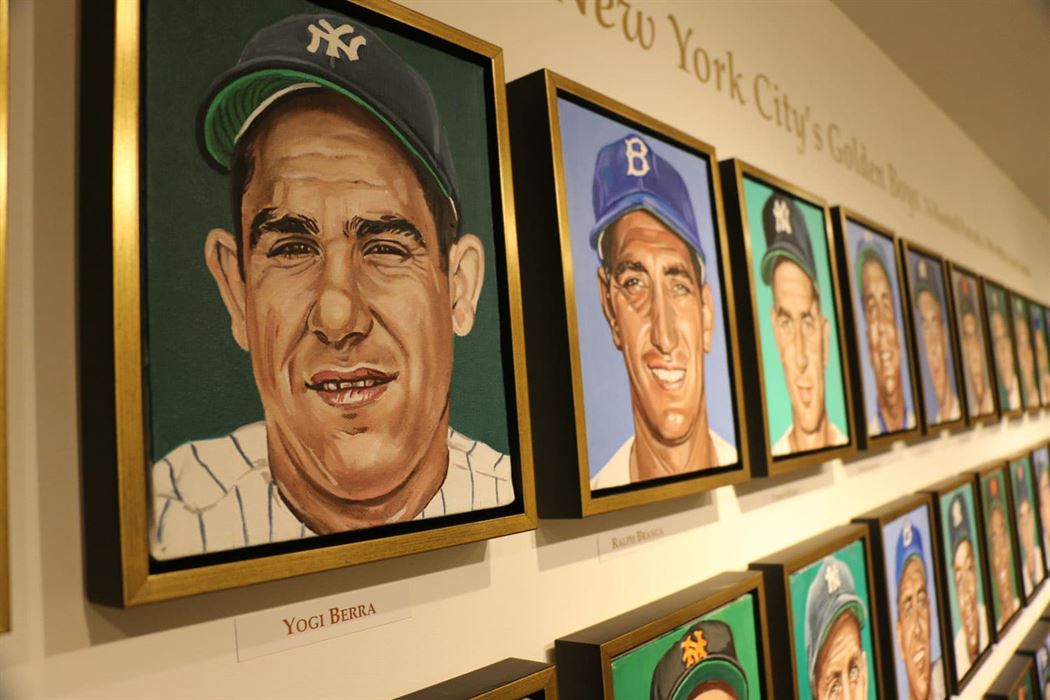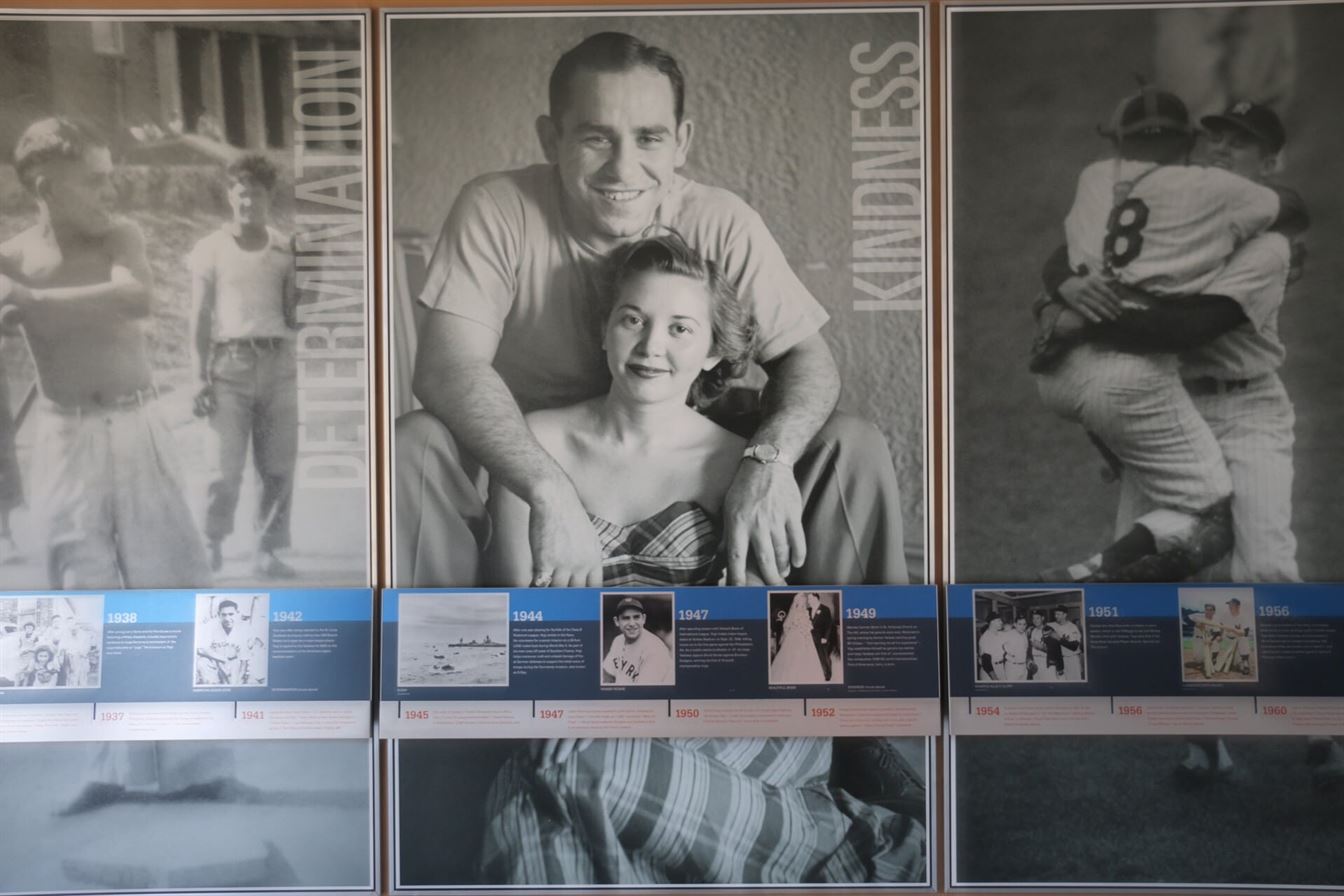
A recently added exhibit, “New York City’s Golden Boys” by renowned baseball artist Andy Jurinko, adorns the hallway wall with 76 portraits of famous baseball players.
Olivia Kearns | The Montclarion
“Dear Darling,” started Yogi Berra at the beginning of his many old-fashioned love letters to his wife Carmen. His effortless words described his game time away from her with trivial details about weather and his plans for the day.
Tucked into a corner of the small but esteemed Yogi Berra Museum and Learning Center is a secreted section of personal family memorabilia. Though the section ranges from details about Berra’s immigrant parents to pictures of his own children, it stands out most with this rare collection of love letters.

A timeline of Yogi Berra’s life weaves through the museum’s atrium and features a large photograph of him and his wife Carmen.
Olivia Kearns | The Montclairion
Reading these personal gems takes the reader down a path few have traveled when thinking of baseball legend Yogi Berra. The records he set as one of the greatest two-way catchers of all time quickly get shoved to the side when one reads the simple yet loving words of his many letters. Some letters are written on hotel notepads, showing what a truly devoted husband Berra was because of his willingness to always set aside time for his wife.
However, this is not the only hidden gem within the museum. Through the vintage photography that adorns the walls with history and Executive Director Eve Schaenen’s invention of the Mitt Mobile (an interactive cart filled with baseball mitts from 1895 to modern day), visitors can learn how America’s favorite pastime progressed from the start of Berra’s career to the end of his life.
Yet, there is so much more to this museum than just baseball. Schaenen stresses the museum’s values – respect, perseverance, sportsmanship and excellence – when describing its diverse collections.
“I think it’s important to let young people find what’s meaningful to them in the museum rather than prescribe any set takeaway,” Schaenen said. “The space itself and the programs we offer are steeped in Yogi’s values. If there’s one idea that comes through all of it, it’s respect. Respect for others. Respect for the game. Respect for oneself and for one’s community.”
In an effort to educate visitors about the extent of Berra’s legacy, the museum houses many sections regarding different aspects of Berra’s life, from his charity work to his acceptance of the Presidential Medal of Freedom.

Yogi Berra’s Presidential Medal of Freedom, which is on display at Yogi Berra Museum.
Photo courtesy of www.yogiberramuseum.org
A recent viewer of the museum, Montclair State University junior public relations major Stephanie Michael, observed this uniqueness about the museum.
“I’m not into sports, so it was surprising to see that not everything was about baseball,” Michael said. “There was a portion about his education and his participation in the war, which was cool to read.”
Another gem museumgoers stumble upon is the section on Berra’s understated participation in World War II. With his uniform on display, the museum shines a light on his role as a U.S. Navy seaman on D-Day.
“What stood out to me the most was the reading about how Yogi Berra was in World War II, and he was there at D-Day,” Michael said. “I did not know much about him, but I certainly had no idea that he was a part of the war effort.”

A military section features memorabilia from Yogi Berra’s time in the US Navy.
Olivia Kearns | The Montclairion
Besides these exclusive looks in Berra’s celebrated life, one of the best parts of the Yogi Berra Museum and Learning Center is how it reaches out to the local community. The museum has hosted various events to bond with Montclair residents, such as a veterans fair and the Inaugural Yogi Berra Museum Awards Dinner. The dinner hosted many individuals who earned awards based on their character qualities that represent Berra’s famous values of respect, perseverance, sportsmanship and excellence.
It plans to host more events that will connect with all types of people. The learning center has also hosted summer day camps and made frequent grade school visits to build educational values in students.
“[Students] have fun at these programs,” Schaenen said. “Fun is very important here at the Yogi Berra Museum & Learning Center.”



